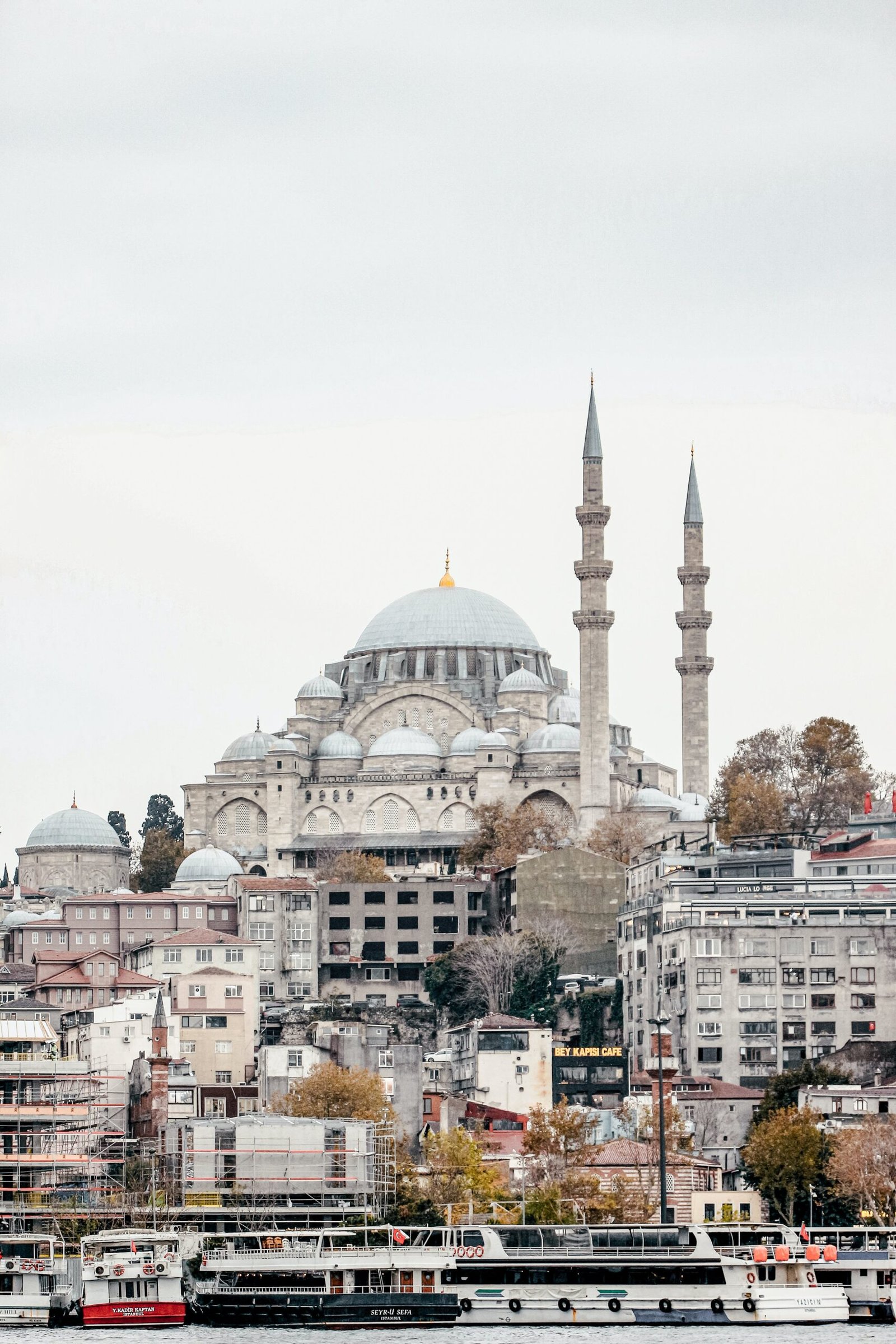
Are you planning a trip to Ireland? Stay informed and up-to-date with the latest travel updates in Ireland. From new travel restrictions to must-visit destinations, this article provides you with all the essential information you need. Embark on an unforgettable journey through the breathtaking landscapes, rich history, and vibrant culture of Ireland, armed with the most recent updates to make the most of your visit. So, let’s dive into the latest Ireland travel updates and ensure your trip is nothing short of incredible.

COVID-19 Travel Restrictions
Entry Requirements
If you are planning to travel to Ireland, it is important to be aware of the current entry requirements due to COVID-19. As of now, all passengers arriving in Ireland must complete a Passenger Locator Form, providing their contact information and details of their travel history. Additionally, depending on the country you are traveling from, you may be required to present a negative COVID-19 PCR test result taken within a certain timeframe before your arrival. It is crucial to check the specific requirements for your country of departure before you travel.
Quarantine Rules
Upon arrival in Ireland, you may be subject to quarantine rules based on the risk assessment of your country of departure. Currently, there is a system in place categorizing countries into “green,” “orange,” and “red” list, each with different quarantine and testing requirements. If you are arriving from a “red” list country, you will be required to undergo mandatory hotel quarantine for a period of 14 days. For countries on the “orange” list, you will need to self-isolate at home and undergo testing. Travelers from “green” list countries do not need to quarantine but will still need to follow public health guidelines. It is crucial to stay updated on the latest quarantine rules and comply with them to ensure a safe and smooth trip.
Vaccine Passports
As vaccination programs continue to roll out globally, countries are exploring the concept of vaccine passports to facilitate safe travel. Currently, Ireland does not have a definitive vaccine passport system in place. However, the European Union is working on implementing a Digital Green Certificate, which will provide proof of vaccination, negative COVID-19 test results, or recovery from the virus. It is advisable to stay informed about any developments regarding vaccine passports, as they may become a requirement for international travel in the near future.
Testing Guidelines
COVID-19 testing plays a crucial role in ensuring the safety of travelers and preventing the spread of the virus. Before traveling to Ireland, it is essential to check the specific testing guidelines for your country of departure. In general, passengers arriving in Ireland must have a negative COVID-19 PCR test taken within 72 hours prior to their arrival. Children aged six and under are exempt from this requirement. It is important to note that even with a negative test result, you may still be subject to quarantine or self-isolation requirements based on the risk assessment of your country of departure. Be sure to stay updated on the latest testing guidelines to have a smooth and safe travel experience.
Transportation
Air Travel
Air travel is one of the most common ways to reach Ireland, and many airlines operate flights to and from major cities around the world. However, due to COVID-19, it is important to be aware of any travel restrictions or requirements imposed by both Irish authorities and your country of departure. Before you book your flight, check with the airline for any specific protocols or guidelines they have in place. It is also recommended to arrive at the airport well in advance of your departure time to allow for any additional health checks or screening processes that may be in place.
Ferry Services
If you prefer traveling by sea, ferries are a popular option for reaching Ireland from the United Kingdom and certain parts of Europe. Companies like Irish Ferries and Stena Line operate regular services between Ireland and various ports in neighboring countries. However, it is important to check the current status of ferry services and any travel restrictions or guidelines that may be in place. Additionally, be aware of any requirements for testing or quarantine that may apply when entering Ireland via ferry.
Trains and Buses
If you are already in Europe, trains and buses can provide a convenient and affordable way to travel to Ireland. Train services such as Eurostar and Thalys connect with ferry services for a seamless journey. Eurolines operates bus services to and from Ireland, connecting with major cities across Europe. Before you travel, check the current availability and schedules of train and bus services, as well as any COVID-19 related protocols or restrictions that may be in place. It is also recommended to book your tickets in advance to secure your seat.
Car Rental
Renting a car allows you to have more flexibility and independence during your trip to Ireland. There are several car rental companies operating in the country, offering a range of vehicles to suit your needs. Before renting a car, make sure to familiarize yourself with the driving laws and regulations in Ireland. Additionally, check with the rental company for any specific COVID-19 protocols they have in place, such as enhanced cleaning procedures or contactless pick-up and drop-off options. Having your own vehicle can be a convenient way to explore the beautiful landscapes and attractions Ireland has to offer.
Public Transportation
Once you arrive in Ireland, public transportation is a convenient way to get around cities and towns. Bus services, such as Dublin Bus and Bus Éireann, operate comprehensive networks, connecting major cities and smaller towns across the country. Trains, operated by Irish Rail, provide efficient and comfortable travel between different regions of Ireland. When using public transportation, it is important to follow any guidelines or regulations in place, such as wearing face masks and maintaining social distancing. Be sure to check the latest schedules and any capacity restrictions before using public transportation.
Accommodation
Hotels
Hotels are a popular choice for accommodation in Ireland, offering a range of options from budget-friendly to luxury establishments. Many hotels have implemented enhanced cleaning and safety protocols in response to COVID-19. These measures may include increased sanitation, contactless check-in and check-out, and social distancing measures. Before booking a hotel, check their website or contact them directly to inquire about their specific COVID-19 protocols. It is advisable to book your accommodation in advance to ensure availability and to have a smooth and enjoyable stay.
B&Bs and Guesthouses
Bed and Breakfasts (B&Bs) and guesthouses are a charming option for accommodation in Ireland. These establishments often provide a more personal and homely experience, with the hosts offering local insights and recommendations. Many B&Bs and guesthouses have implemented additional cleaning measures and safety protocols to ensure the well-being of their guests. Before booking, inquire about their COVID-19 protocols and any specific guidelines they may have in place. B&Bs and guesthouses can provide a cozy and welcoming stay, allowing you to immerse yourself in the Irish hospitality.
Hostels
If you are traveling on a budget or prefer a more social atmosphere, hostels are a popular choice in Ireland. Hostels offer dormitory-style accommodations, as well as private rooms, and often have communal areas where travelers can meet and interact. In response to COVID-19, many hostels have implemented enhanced cleaning procedures, reduced occupancy, and social distancing measures. Before booking a hostel, check their website or contact them for information about their COVID-19 protocols. Staying in a hostel can be a great way to meet fellow travelers and experience a sociable and affordable stay in Ireland.
Self-Catering Accommodation
For those who prefer more independent and flexible accommodations, self-catering options are available in Ireland. This includes holiday homes, apartments, and cottages that come equipped with kitchen facilities, allowing you to prepare your own meals. Self-catering accommodations often provide more space and privacy, making them suitable for families or longer stays. Before booking a self-catering accommodation, ensure that they have implemented appropriate cleaning protocols and have a clear cancellation policy in case of any travel disruptions. Self-catering accommodations offer the convenience of a home away from home during your time in Ireland.
Campsites
For nature enthusiasts and outdoor lovers, camping can be a fantastic way to experience Ireland’s stunning landscapes. There are numerous campsites across the country, ranging from basic facilities to more luxurious options with added amenities. Camping allows you to immerse yourself in nature, waking up to breathtaking views and taking part in outdoor activities. When camping, it is important to follow any guidelines and regulations set by the campsite, including waste disposal and fire safety. Be sure to check in advance for availability and book your spot ahead of time, especially during peak travel seasons.
Tourist Attractions
Museums and Galleries
Ireland is home to a rich cultural heritage, and its museums and galleries offer a glimpse into the country’s history and art. From the extensive collections at the National Museum of Ireland to the iconic Book of Kells at Trinity College in Dublin, there is something to cater to every interest. Before visiting museums and galleries, check their websites or contact them for information regarding COVID-19 restrictions, such as timed entry slots or capacity limitations. Many attractions now require pre-booking to manage visitor numbers and ensure a safe and enjoyable visit.
Historical Sites
With its ancient castles, medieval ruins, and ancient burial sites, Ireland is a treasure trove of historical sites. From the iconic Blarney Castle to the prehistoric wonders of Newgrange, there are countless fascinating locations to explore. Prior to visiting historical sites, check if they require advance booking or have specific visiting hours due to COVID-19 restrictions. Plan your itinerary accordingly and allow for extra time for additional health and safety measures, such as temperature checks or guided tours in smaller groups.
Natural Wonders
Ireland’s landscapes are renowned for their natural beauty, from rugged coastlines to rolling green hills. Natural wonders such as the Cliffs of Moher and the Giant’s Causeway are must-see destinations for nature enthusiasts. Before exploring these natural wonders, be aware of any necessary permits or restrictions, especially if they are located in protected areas. As these attractions often attract large numbers of visitors, it is advisable to visit early in the day or during off-peak periods to avoid crowds and maintain social distancing.
Castles and Ruins
For a glimpse into Ireland’s rich history and heritage, visiting its castles and ruins is a must. From well-preserved castles like Bunratty Castle to picturesque ruins like Dunluce Castle, these sites offer a glimpse into a bygone era. Before visiting castles and ruins, it is important to check for any COVID-19 restrictions or guidelines in place. Some sites may have limited access or require timed entry slots. Additionally, be aware of any safety measures in place, such as one-way systems or restricted access to certain areas.
Parks and Gardens
Ireland’s parks and gardens provide a tranquil escape from the bustling cities, offering a chance to relax and enjoy the natural beauty. Parks such as Phoenix Park in Dublin or Killarney National Park offer expansive green spaces for walking, picnicking, or cycling. Before visiting parks and gardens, check for any COVID-19 guidelines, such as the requirement to maintain social distancing or limited access to certain facilities. Enjoy the fresh air and beautiful surroundings while adhering to any safety measures in place to ensure a pleasant and safe experience.

Events and Festivals
Upcoming Events
Ireland is known for its vibrant calendar of events and festivals celebrating music, culture, and tradition. While the COVID-19 pandemic has significantly impacted the events scene, there are still upcoming events to look forward to. Check the latest updates from event organizers, local authorities, and official tourism websites for information regarding upcoming events. It is important to note that events may have limited capacity, require advance booking, or follow specific health and safety measures. Stay informed and plan accordingly to make the most of your time in Ireland.
Canceled or Postponed Events
Due to the ongoing COVID-19 pandemic, many events and festivals in Ireland have had to be canceled or postponed. This includes popular events like St. Patrick’s Day parades, music festivals, and cultural gatherings. If you had plans to attend a specific event, it is advisable to check the official websites or social media pages for cancellation or rescheduling announcements. While it may be disappointing, prioritizing health and safety is of utmost importance. Consider exploring alternative activities or virtual events that may be available during your visit.
Virtual Events
As an alternative to in-person gatherings, many events and festivals have transitioned to virtual formats, allowing people to participate from the comfort of their own homes. This includes live-streamed concerts, online workshops, and virtual tours. Check official event websites or social media pages for information about virtual offerings. While it may not provide the same experience as attending an event in person, virtual events can still allow you to engage with Irish culture and entertainment during your trip.
Safety Measures for Events
When attending events in Ireland, it is crucial to prioritize your safety and the safety of others. Follow any guidelines or protocols set by event organizers and local authorities. This may include wearing face masks, maintaining social distancing, and practicing good hand hygiene. Be prepared for additional security checks or health screenings at event venues. It is advisable to plan ahead and familiarize yourself with the specific safety measures in place for the event you are attending. By being responsible and adhering to the guidelines, we can all enjoy events while minimizing the risk of COVID-19 transmission.
Local Laws and Customs
Alcohol Laws
In Ireland, the legal drinking age is 18. It is important to abide by this law and refrain from purchasing or consuming alcohol if you are under the legal age. Additionally, drinking alcohol in public places may be restricted or prohibited in certain areas, so it is advisable to familiarize yourself with local regulations. When consuming alcohol, please do so responsibly and be mindful of your behavior, ensuring the comfort and safety of those around you.
Smoking Regulations
Ireland has strict regulations regarding smoking in public places. Smoking is prohibited in enclosed public spaces, including bars, restaurants, and public transportation. Designated smoking areas may be available in some establishments or outdoor spaces, but it is important to always check for any signage or restrictions. Be considerate of others and dispose of cigarette butts properly to maintain cleanliness and the well-being of the environment.
Tipping Etiquette
Tipping in Ireland is a common practice for good service. While it is not obligatory, tipping is appreciated and generally expected in restaurants, bars, and taxis. A tip of around 10-15% of the total bill is customary. When tipping, it is best to leave the amount in cash directly for the service provider. It is important to note that some establishments may include a service charge in the bill, so check the receipt before deciding on the tip amount.
Driving Laws
If you plan to drive in Ireland, it is important to be familiar with the country’s driving laws. In Ireland, driving is on the left-hand side of the road, and the speed limits are generally in kilometers per hour (km/h). Seat belts are mandatory for all passengers, and the use of mobile phones while driving is prohibited, unless using a hands-free system. Make sure to carry a valid driver’s license, proof of insurance, and any necessary documentation for the vehicle you are driving.
Dress Code
Ireland generally has a casual dress code, but it is always a good idea to be aware of any specific dress requirements for certain establishments or occasions. In more formal settings, such as fine dining restaurants or theaters, smart casual or formal attire may be expected. When visiting religious sites or attending religious ceremonies, it is advisable to dress modestly and respectfully. Generally, dressing in layers is a good idea, as the weather in Ireland can be changeable, especially in coastal areas.

Health and Safety
Emergency Services
In case of any emergencies while in Ireland, it is important to familiarize yourself with the local emergency numbers. The general emergency number in Ireland is 112 or 999, which can be used for immediate assistance in case of accidents, medical emergencies, or other emergencies requiring police, fire, or ambulance services. Make a note of these numbers and ensure that you have them readily available in case of any unforeseen circumstances.
Medical Facilities
Ireland has a strong healthcare system, with hospitals, clinics, and pharmacies located throughout the country. If you require medical assistance during your visit, it is important to seek care from a reputable medical facility. In case of minor illnesses or injuries, pharmacies can provide over-the-counter medications and advice. It is advisable to have comprehensive travel insurance that covers any medical expenses and consider obtaining an EHIC (European Health Insurance Card) if you are an EU citizen.
Health Insurance
It is highly recommended to have comprehensive travel insurance that covers medical expenses, including those related to COVID-19. Before traveling to Ireland, check with your insurance provider about the coverage they offer and any specific requirements or limitations related to the ongoing pandemic. Having appropriate travel insurance provides peace of mind and ensures that you are protected in case of any unforeseen circumstances or medical emergencies.
COVID-19 Guidelines
To minimize the risk of COVID-19 transmission, it is essential to follow the guidelines and protocols set by the Irish government and public health authorities. This includes practicing good hand hygiene, maintaining social distancing, wearing face masks in indoor public spaces or where social distancing cannot be maintained, and following any specific restrictions or regulations in place. Stay updated on the latest COVID-19 guidelines during your visit to Ireland to ensure the safety of yourself and those around you.
Safety Tips
When traveling in Ireland, it is always important to prioritize your personal safety and security. Take necessary precautions to safeguard your belongings, such as keeping valuables secured and being aware of your surroundings. Avoid walking alone late at night or in unfamiliar or poorly lit areas. If you are planning outdoor activities or hikes, make sure to inform someone of your plans and check the weather conditions beforehand. By being vigilant and taking necessary precautions, you can have a safe and enjoyable experience in Ireland.
Currency and Payment
Official Currency
The official currency in Ireland is the Euro (€). It is advisable to have some cash on hand for smaller establishments that may not accept card payments, as well as for tips and other incidental expenses. ATMs are widely available in cities and towns, where you can withdraw cash in the local currency. Major credit and debit cards are widely accepted in most establishments, including hotels, restaurants, and shops. However, it is always a good idea to have a backup payment method, such as a second card or traveler’s checks, in case of any issues with your primary card.
Payment Options
When making payments in Ireland, you can choose between cash or card options. As mentioned earlier, having some cash on hand is advisable for smaller establishments or locations where card payments may not be accepted. Debit and credit cards are widely accepted in most places, but it is important to check for any minimum spend requirements or additional fees that may apply. Contactless payments are also commonly used, especially for smaller transactions. It is advisable to inform your bank or credit card company of your travel plans to avoid any issues with card usage.
ATMs and Banks
ATMs, also known as cash machines or cash points, are readily available throughout Ireland. They can be found in cities, towns, and even in some rural areas. ATM machines are often located at banks, outside shopping centers, or in convenience stores. Before using an ATM, be aware of any associated fees that may apply, especially if you are using a non-Irish bank card. It is recommended to use ATMs located within banks, as they tend to have better security measures in place.
Currency Exchange
If you need to exchange currency, banks and currency exchange offices are available in major cities and tourist areas. Banks generally offer competitive exchange rates, and it is advisable to compare rates before making a transaction. Some hotels and tourist information offices may also provide currency exchange services, but be cautious of any additional fees or less favorable exchange rates. It is important to note that using ATMs to withdraw cash in the local currency generally offers more competitive rates compared to exchanging cash.
Travel Resources
Tourist Information Centers
Tourist information centers are a valuable resource for travelers seeking information about Ireland. These centers provide maps, brochures, and advice on local attractions, accommodations, and transport options. Additionally, the staff at tourist information centers can offer recommendations based on your interests and provide guidance on planning your itinerary. It is advisable to visit the official tourist information websites or contact the centers directly for the latest information on opening hours and any COVID-19 related protocols.
Online Travel Guides
Online travel guides are a convenient and comprehensive resource for planning your trip to Ireland. Websites such as Discover Ireland and Lonely Planet provide detailed information on attractions, accommodations, transportation, and local tips. These online guides offer insights into the best places to visit, things to do, and practical information to make the most of your time in Ireland. Be sure to check for any updates or specific COVID-19 related guidelines before relying on the information provided.
Travel Apps
Travel apps can enhance your experience and make your trip to Ireland more convenient. From navigation apps like Google Maps or Waze to transportation apps like Irish Rail or Dublin Bus, there are numerous apps available that can assist with planning and navigating your journey. Additionally, apps like TripAdvisor and Yelp can provide recommendations for restaurants, attractions, and accommodations based on user reviews. Download these apps before your trip to have them readily available, and consider using offline maps to save on data usage.
Transportation Apps
When using public transportation in Ireland, transportation apps can be valuable tools for planning your routes and checking schedules. Apps like Irish Rail, Dublin Bus, and Bus Éireann provide up-to-date information on timetables, routes, and real-time updates for delays or disruptions. These apps can help you navigate the public transportation system efficiently and ensure that you arrive at your destination on time. Consider downloading these apps or checking the official websites for transportation providers before your trip.
Weather and Climate
Seasons in Ireland
Ireland experiences a temperate maritime climate, influenced by the Gulf Stream and Atlantic Ocean. The country does not have extreme temperatures, but weather conditions can be changeable throughout the year. The seasons in Ireland can be broadly categorized as follows:
-
Spring (March to May): Spring in Ireland brings milder temperatures, with average highs ranging from 8°C to 13°C (46°F to 55°F). It can be quite wet, so be prepared for rain showers and pack a waterproof jacket.
-
Summer (June to August): Summers in Ireland are generally mild, with average highs ranging from 15°C to 20°C (59°F to 68°F). While it is the warmest time of the year, rain showers are still common, so it is advisable to carry a light jacket or umbrella.
-
Autumn (September to November): Autumn in Ireland is characterized by mild temperatures, with average highs ranging from 14°C to 18°C (57°F to 64°F). It is a beautiful season to witness the changing colors of the landscapes, but be prepared for occasional rain and cooler evenings.
-
Winter (December to February): Winters in Ireland are mild, with average highs ranging from 6°C to 10°C (43°F to 50°F). It can be quite damp and windy, with occasional frost and snowfall in some regions. Layered clothing and a waterproof jacket are recommended during this season.
Average Temperatures
The average temperatures in Ireland vary depending on the season and location. In general, summers tend to be milder, with average highs ranging from 15°C to 20°C (59°F to 68°F). Winters are generally cooler, with average highs ranging from 6°C to 10°C (43°F to 50°F). It is advisable to check the weather forecast for the specific region you are visiting, as temperatures can differ between coastal areas and inland regions. Packing layered clothing is recommended to adapt to the changeable weather conditions.
Rainfall and Precipitation
Rainfall is a common occurrence in Ireland throughout the year. The country’s lush green landscapes are a result of its relatively high levels of precipitation. Rainfall can be expected at any time, regardless of the season, so it is advisable to pack a waterproof jacket or umbrella. The west and northwest coasts tend to receive higher levels of rainfall compared to the east and southeast. Be prepared for occasional showers and plan outdoor activities accordingly.
Clothing and Gear
When packing for your trip to Ireland, it is important to consider the changeable weather conditions and be prepared for rain or cooler temperatures. Here are some essential items to consider:
-
Waterproof jacket or raincoat: Ireland is known for its rain showers, so a waterproof jacket or raincoat is a must-have item. Opt for a lightweight, breathable option that can be easily layered over other clothing.
-
Layered clothing: Pack clothing that can be layered to adapt to changing weather conditions. This includes lightweight t-shirts, long-sleeved tops, sweaters or fleeces, and a warm jacket or coat for cooler evenings.
-
Comfortable walking shoes: Ireland offers beautiful landscapes for exploring, so comfortable walking shoes or hiking boots are recommended. Choose footwear with good traction to navigate uneven terrain.
-
Umbrella: While a waterproof jacket will keep you dry, having a compact travel umbrella can provide additional protection during heavy rain showers.
-
Sunscreen and hat: Even on cloudy days, UV rays can still be strong. Pack sunscreen with a high SPF and a wide-brimmed hat to protect yourself from the sun’s rays when outdoors.
By being prepared with the appropriate clothing and gear, you can make the most of your time in Ireland and comfortably enjoy all that the country has to offer, regardless of the weather conditions.
In conclusion, traveling to Ireland amid the ongoing COVID-19 pandemic requires careful planning and adherence to specific guidelines and restrictions. It is important to stay updated on the latest travel advisories and follow the recommended health and safety protocols. By being informed and responsible, you can have a safe and enjoyable trip, exploring the beautiful landscapes, experiencing the rich culture, and creating lasting memories in the Emerald Isle.





